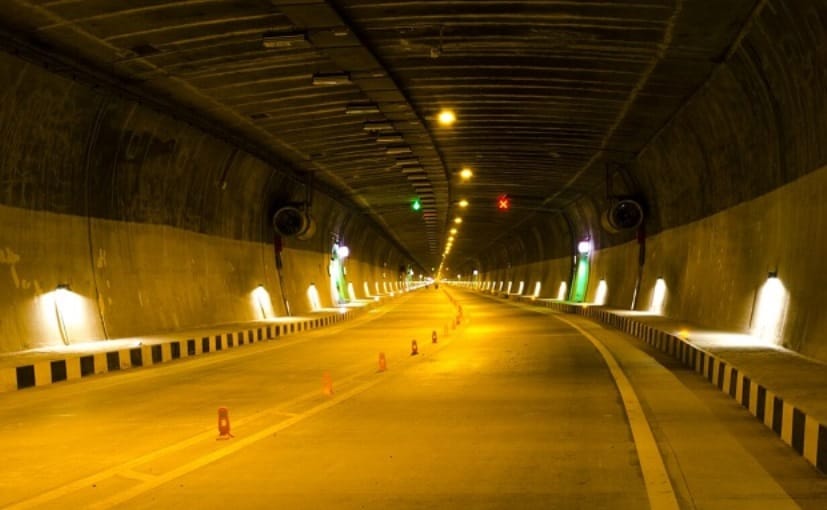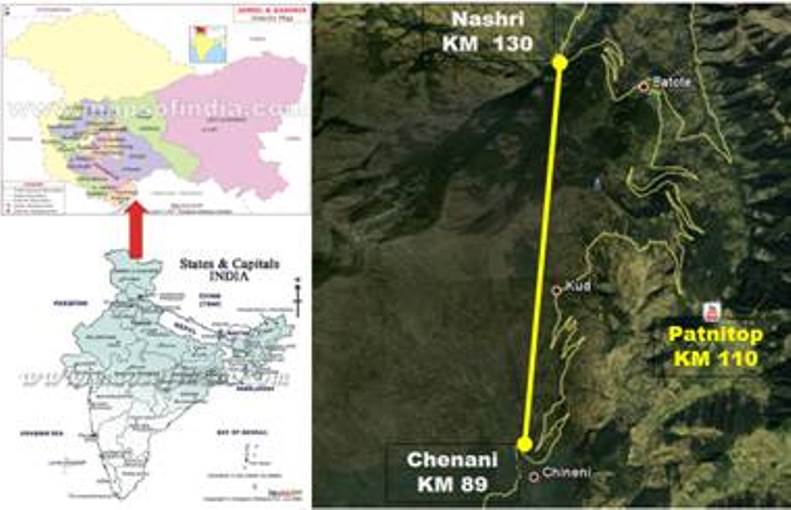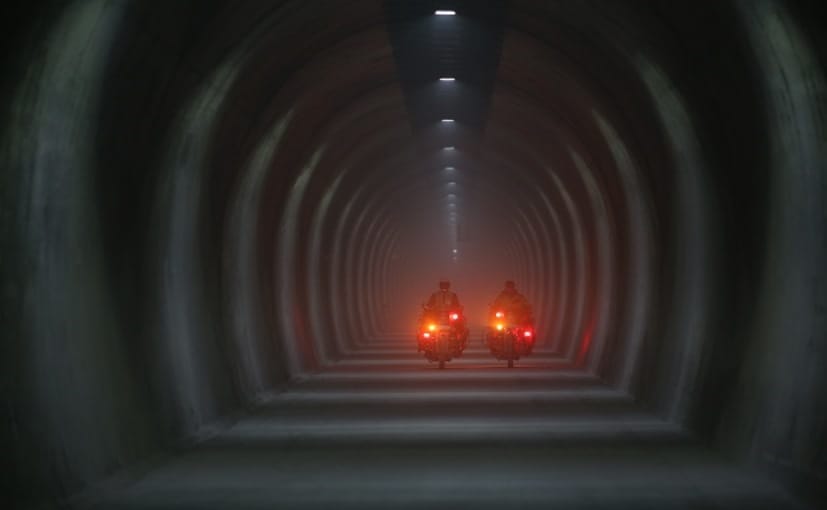Prime Minister Narendra Modi Inaugurates India's Longest Road Tunnel

Highlights
- Chenani-Nashri tunnel is also Asia's longest bi-directional road tunnel
- Travel time between Srinagar & Jammu will be cut down by over 2 hours
- The tunnel was constructed at a cost of about Rs. 3,720 crore
Prime Minister (PM) Narendra Modi today inaugurated the country's longest highway tunnel - the Chenani-Nashri highway tunnel in Jammu and Kashmir. At over 9 km, it's not only the longest highways tunnel in India but also Asia's longest bi-directional highways tunnel. We have already told you all about this new tunnel in J&K. A part of the 286-km-long four-lane project of the Jammu-Srinagar National Highway, the Chenani-Nashri highway tunnel will reduce the travel time between Srinagar and Jammu by over two hours bringing down the distance by over 30 km. PM Narendra Modi dedicated the Chenani- Nashri tunnel to the nation as he flagged it off for public usage.
The construction of the tunnel began back in 2011 and particularly in the past four years, around 600 to 900 people from across the country also worked on this project. The project has provided employment to over 2,000 unskilled and skilled youth of Jammu and Kashmir as 94 percent of the workforce was from the state.

The tunnel is over 9 km long and equipped with advanced tunnel management system
Located on one of the most difficult Himalayan terrains, between Udhampur and Ramban in Jammu & Kashmir, the Chenani-Nashri highway tunnel has been built at an elevation of 1200 metres. The tunnel was constructed at a cost of about Rs. 3720 crores and features some of the most advanced safety and tunnel management systems. It's an all-weather tunnel that said to ensure safe passage on a route that often sees heavy traffic jams and disruptions due to landslides, snow, sharp curves, the breakdown of vehicles and accidents. It also comes with an intelligent traffic mechanism, the tunnel has fully automatic smart control and no human intervention will be required for its operations.

It is a 9 km long two-lane main tunnel with a parallel escape tunnel of the same length. There are two minor bridges on the south and north sides and 4-lane approach roads with Toll Plazas on both ends of the tunnel. The two tunnels are connected by 29 cross passages at regular intervals along the entire length of the tunnel, which can be used in the event of an emergency or breakdown for evacuating vehicles and commuters. The maximum height permitted in the tunnel is 5 meters and for checking the height special sensors have been installed just before the toll points at both ends.

Chenani-Nashri highway tunnels are connected by 29 cross passages at regular intervals
Safety and security have also been given utmost importance, as the tunnel comes with an integrated tunnel control system' that allows ventilation, fire control, signals, communication and electrical systems to be automatically actuated. There are about 124 CCTV cameras have been installed at equal intervals of 75 meters feeding information to the operation room. The tunnel is also equipped with advanced scanners to ward off any security threat.
Last Updated on April 2, 2017
Related Articles
Latest News
- Home
- News
- Auto Industry
- Prime Minister Narendra Modi Inaugurates India's Longest Road Tunnel Connecting Srinagar And Jammu



















